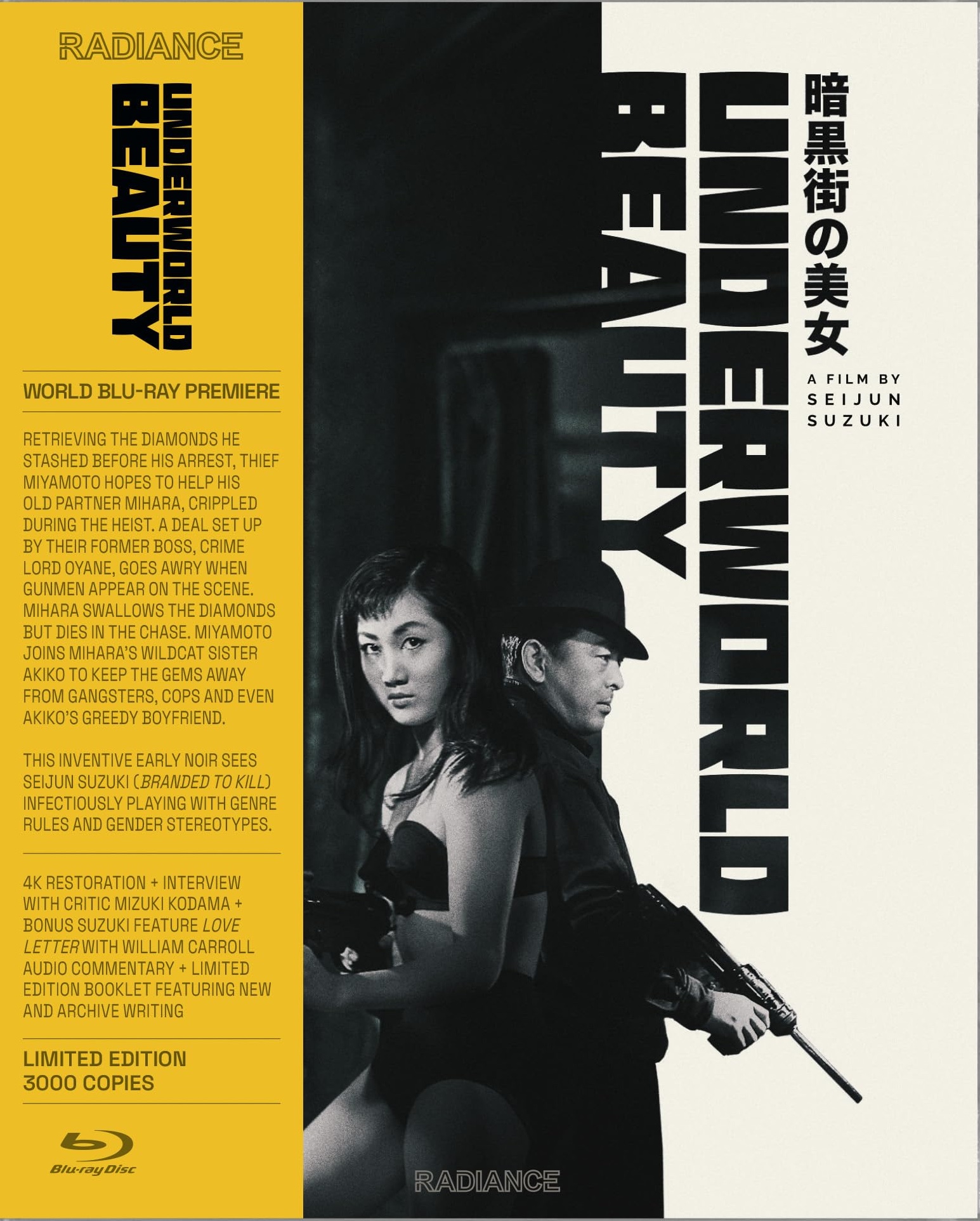Miyamoto (Michitarô Mizushima) is fresh from a stint in prison due to a diamond heist. After collecting the hidden diamonds from the heist, he tells his yakuza boss Oyane (Shinsuke Ashida) that the profits from the diamonds are going to his old partner Mihara (Tôru Abe) who was crippled in the heist to get them. Oyane agrees to broker a deal for him but things turn sideways, resulting in Mihara swallowing the diamonds and committing suicide. Enter Akiko (Mari Shiraki), Mihara’s younger sister who inadvertently finds herself in the middle of a bunch of thugs all vying for the diamonds including her conniving artist boyfriend. Miyamoto finds himself wanting to protect Akiko from danger as a means of honoring his ex-partner. Will they be able to make it out of this mess alive?
This early period Seijun Suzuki film may not be as visually or narratively daring as films like Tokyo Drifter or Branded to Kill, but this still has the touch of a master filmmaker who is beginning to experiment with narrative conventions and push at the seams of the studio system at the time. While the film begins somewhat conventionally, kicking off a plot involving stolen diamonds as a Macguffin, it’s the introduction of Shiraki’s character Akiko, the titular Underworld Beauty, that really brings the film to another level. Akiko is lively and carefree in a way that you just don’t see in Japanese women in the films of the ’40s and ’50s. The narrative seems built around her rather than she existing to service the narrative, and I think this makes for a better and more progressive film overall. Additionally, the overall atmosphere is classic Japanese noir with some very nice black & white cinematography and a great dynamic score. The movie is just… cool… you know?
Radiance has served up another nice digital transfer provided by Nikkatsu. The rich cinematography from studio workhorse Toshitarô Nakao comes across very clean and consistent with nice, deep black levels and little to no noticeable distortion in the image. For the audio, we have a nice and clear Japanese mono track that does its job with no noticeable hiss. The extras provided here are of the substantial variety. First up we have a full-length audio commentary by William Carroll who wrote the book Suzuki Seijun and Postwar Japanese Cinema, and his track is full of lots of good info on Suzuki and his whole career and in particular where Underworld Beauty fits in. We also get a new interview with film critic Mizuki Kodama who goes into details about just how unconventional a female character Akiko was in this film. To top it all off, we also get a whole short feature directed by Suzuki from this same time period, Love Letter, and it ALSO includes a full audio commentary from William Carroll. Love Letter is a nice little romantic melodrama, that while like Underworld Beauty is a more conventional Suzuki picture, it still has little touches that show how Suzuki was willing to experiment and try interesting things. With the limited edition, as usual, Radiance has included a physical booklet with an essay by film author Claudia Siefen-Lietich that feels rather esoteric and more academic than I personally prefer. It also includes a review of the film from Kinema Junpo by Seizo Okada.
Underworld Beauty is a fun, if a bit conventional, crime flick from a Seijun Suzuki who was just starting to figure out how to spread his wings and push against the constraints that were placed on him. It’s a great film and is essential for those looking to see the evolution of a seminal director.

